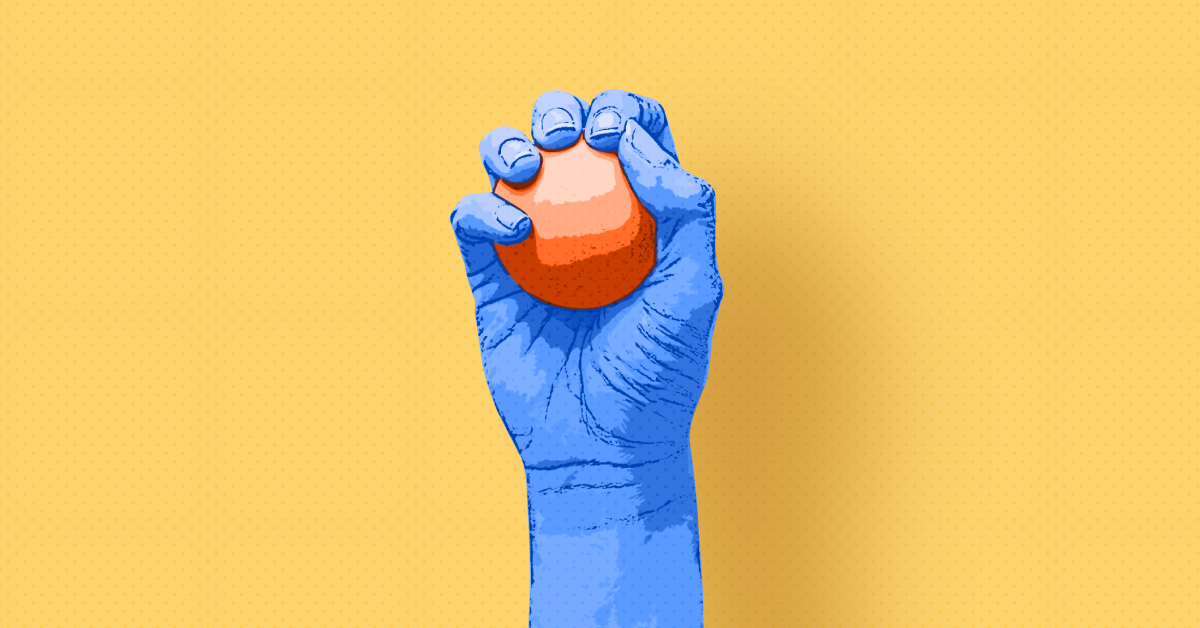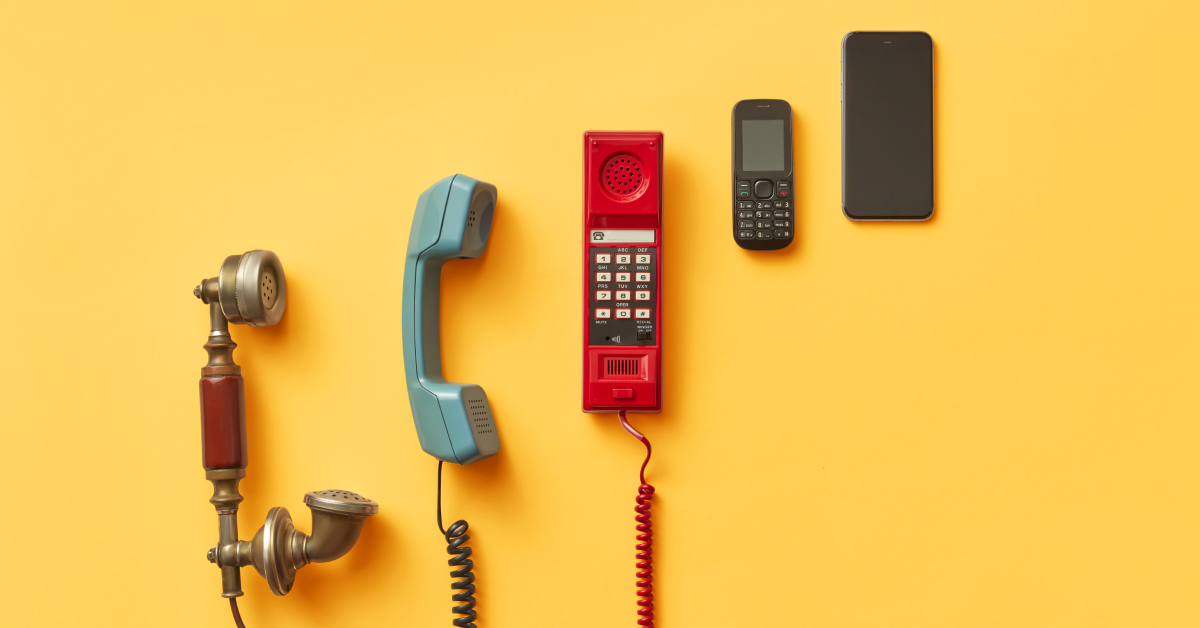If budget cuts, redundancies, and threats around AI have you stressed about the future of work (and your career), then you’re far from alone. Studies show that approximately 76% of employees in the UK report feeling moderate to high levels of stress at work, with 73% saying that the top cause of stress is their workload.
Chief Members Rachel Guervara from TaskUs, Stacey Payne from Daily Harvest, and Dr. Pooja Mittal from Health Net discuss the many different ways in which they, firstly, identify stress in their teams, and secondly, help mitigate it in order to boost their mental health and maintain overall productivity. With mental health remaining taboo in the C-Suite, these leaders also share how they tend to their own well-being amid ever-changing workplace demands.
Stacey Payne, Chief People Officer at Daily Harvest
On how stress shows up at work:
“Hidden stress or stressors can be really hard to identify, especially in a remote environment since you can’t always see the full picture — literally. That’s why it's more important than ever to have personal relationships with the people on your team. Headaches, missing deadlines, acting or responding to situations that aren’t congruent with their typical behaviours, are all ways we see stress at work. If you’re a leader overseeing teams that are dispersed, you have to be even more aware of how people are not just executing, but how they’re feeling and experiencing their work.”
On how they identify stress company-wide:
“At Daily Harvest our mission is to take care of food so food can take care of you. As our Chief People Officer, I know that if we don’t take care of our team members there is no way we can deliver on this impactful mission. As part of our culture, we focus on creating a psychologically safe space so we can both demystify stress and provide healthy ways to cope with it. One way we do this is by leveraging the DISC assessment which is an incredible tool for building self awareness, improving work productivity, collaboration, and communication. DISC is non-judgmental and helps our teams discuss their behavioural differences including how they show up under stressful situations, which we talk about and share openly. So before we start a project or a new relationship we have a way to share the good, bad, and ugly (yes, stress can be ugly) in a way that is safe (since it’s based on science) and accepted (since everyone at Daily Harvest participates).”
On alleviating stress for her team:
“I create moments where my team talks about how we are feeling, what’s on our plates, how others can help for the week and what we can celebrate together. It’s a time held on our calendars every Monday and Friday. We talk about our lives outside of work and try to help each other with accountability tools. One month we kept a weekly commitment log which tracked our physical, social, mental, and spiritual goals. In April, we had a Spring Into Action Challenge where the whole company tracked five personal health commitments.”
On personally coping with stress:
“As leaders we have demanding roles, and for me, my stress tends to show up physically. So I’ve learned that the more consistency and discipline I build into my morning routine, the more I can preemptively mitigate stress. So every morning I write in a gratitude journal, drink water before I have coffee, take my dog for a walk to get some fresh air and enjoy a Daily Harvest smoothie (Blueberry + Hemp is my favourite). I know this is super simple but it really has been game-changing for me.
“When I’m feeling stressed, I do two things that energise me and bring me joy. First, I try to FaceTime my parents. They usually share all of the fun things they are doing in retirement and remind me that life is so much more than work. Second, I make time to cook. Food is medicine and the practice of preparing a nourishing meal and enjoying it with my husband, does wonders for my soul, mental health, and wellbeing.”
Rachel Guevara, Vice President of Global Wellness & Resiliency at TaskUs
On the key signs that your team is stressed:
“As a leader, it is essential to be familiar with the signs and symptoms of stress as well as a willingness to talk about stress. Has the behaviour of your team changed? Is there increased conflict on the team? Poor communication? Lack of trust? Decreased engagement? If you answer affirmatively to these questions then you may have a stressed-out team.”
On how to alleviate stress for your team:
“Once you determine that stress is a factor, a strategy should be put in place to alleviate it over time. The strategy will vary with dependencies on what is causing the stress, but generally understanding what people value is critical. The thing I find people value the most is time and the need to trust their leaders. Does your team trust you as a leader to do right by them? This requires the ability to create as much predictability and consistency as possible, as chronic change breeds stress. Other hallmarks of creating trust are respect, collaboration (are you willing to do what you are asking your team to do), honest communication, and empathy. Regarding time, ensuring employees have time to plug into what matters to them such as family, partners, children, friends, and pets is critical to improving stress. Think of an employee's outside world as a battery pack that they need to recharge from to be the best version of themselves in the workplace.”
On coping with stress personally:
“I want to start by normalising stress and confirming that even wellness leaders get stressed — often. Stress is your body and mind telling you something, so the goal is not to get rid of stress as it is indicating a need that maybe we are not paying attention to. Personally, I do a variety of things to alleviate stress for myself. I use quick skills that impact the Central Nervous System, specifically my Vagus Nerve to calm my body. Once my body is calm, my mind follows. For example, I may place a cold ice pack on my chest and engage in some deep belly breathing. Or I may use the VOOO Sound which anyone can source on the internet and learn in less than 5 minutes. These are ways that I can quickly get back to my baseline. And, these quick skills are just as important to have as the long-term interventions that build resilience over time, like spending time with my husband, walking my dog every day, taking a holiday, reading a new book, playing tennis, learning to speak Spanish, or paint. It is good to resource yourself in multiple ways to dampen the intensity of stress when it comes.”
On what you are and are not responsible for:
“I will say managing the demands, output, and balance of your team is essential, but you are not responsible for other people's emotions. Maintaining your own boundaries is key, as is leading by example and engaging in healthy levels of vulnerability. For example, my team has a chat only for ’Ridiculously Happy Stuff’ where we share pictures of our dogs, holidays, medals from a race someone won, etc. in an effort to celebrate us as whole people, not just workers.
“Another example is sharing with your team your own willingness to grow and learn and where you ID your own weakness. Lastly, integrate well-being into the fabric of your meetings by considering 5-minutes of mindfulness at the beginning of any call. Anyone can start by just taking one step to improve their well-being and that of their team. Start small and master one thing at a time.”
Dr. Pooja Mittal, Vice President, Chief Health Equity Officer at Health Net
On the hidden markers of workplace stress:
“Stress shows up in so many different ways in the workplace including impatience, altered team dynamics, and also decreased efficiency. I think that when we are stressed we are often less willing to give each other grace.”
On alleviating stress for her team:
“I model taking time away from work and encourage my colleagues to do the same. And, I pitch in. Sometimes helping someone with something small can make a big difference if they are feeling stressed.”
On personally coping with stress:
“I walk if I don’t need to be in front of the screen. Or, even if I am having a one-on-one check in, I take my phone outside and walk while I talk. I strive to be an optimistic leader so I don’t vent to my team. But I do find safe spaces to let out my frustration and I always come back to my why. I love my work and I’m grounded in my mission, so that helps me to get back to it when I am feeling stressed. I also take time out for joy including time off with my kids, reading a good book, or baking.”
On knowing your limits:
“I often tell myself, ‘I am one person and I can only do what one person can do.’ This means I create goals and triage ruthlessly to make sure I am accomplishing what I set out to do. I also think that the key is to give yourself grace. We all have days where we need a break and allowing space for that is important."



